From a jumpsuited Dame Andrea Jenkyns belting out a rock anthem to flag-draped supporters sipping pints in plastic cups at 10.30am, the atmosphere at Reform UK’s annual conference was one of jubilation.
The party may have just four MPs, but following huge success in May’s local elections it now has almost 900 councillors and consistently tops opinion polls.
But what would a Reform government mean for education? Schools Week spent two days in Birmingham trying to find out…
Reform policy holes
“Again and again at elections, they talk the talk. They never walk the walk,” Nigel Farage told supporters on Friday, after arriving in a blaze of pyrotechnics.
But the party leader did not respond when asked about Reform’s education policies.
Lee Anderson, MP for Ashfield and the party’s chief whip, would say only: “That’s being worked on as we speak.”
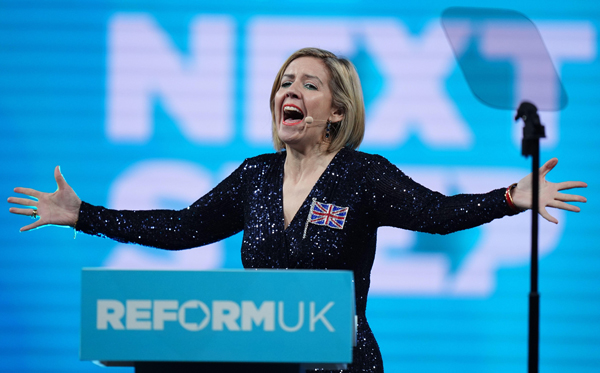
We asked to speak to education spokesperson Belinda de Lucy, but the Reform press office told us the role was now vacant. There was no further explanation.
“This time last year, we had eight local councillors,” Gawain Towler, a Reform board member, told a fringe event.
“We’ve now got over 900 … When you stretch so fast, there are holes, but we are rapidly trying to fill those holes,” said the eccentrically tailored Towler.
Patriotism and plumbing
But the conference certainly gave a flavour of what the party’s education agenda could look like.
“Let’s start teaching kids at school trades and services,” Farage told thousands of cheering supporters during his keynote address. “One thing that AI will not replace is the local plumber.”
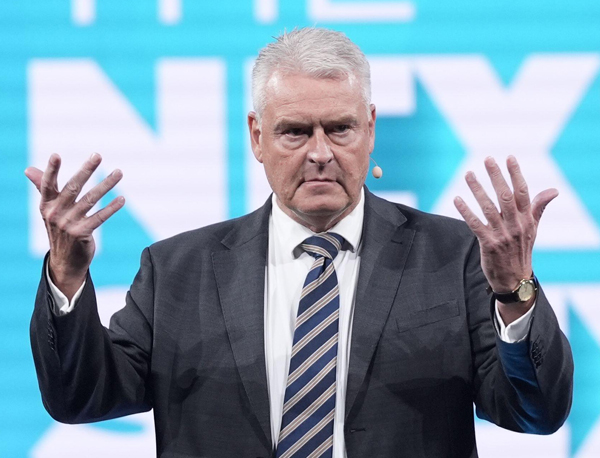
He also hinted at a desire to reshape the curriculum, saying education must “make Britain proud again”.
“We refuse to have our kids’ minds poisoned in schools and universities with a twisted interpretation of the history of these amazing islands. We will not stand for it.”
Reform’s 2024 manifesto pledged a “patriotic” curriculum in schools and for history and social science content to be reviewed to ensure children were “taught about their heritage”. (The other manifesto pledges included banning transgender ideology in schools and doubling the number of pupil referral units).
School ‘indoctrination camps’
Zia Yusuf, Reform’s new head of policy, also spoke of the need to “stop schools from becoming indoctrination camps”.
His inbox was “full”, he claimed, from parents and school children complaining about being “admonished by teachers” for supporting Farage.
Anderson told another fringe event: “There are some teachers in our schools [who] are brainwashing our kids into their way of thinking.
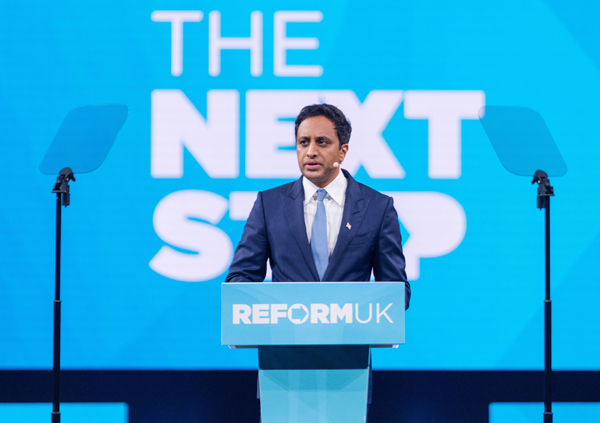
“And when we get into power, we will root these teachers out and hold them to account.”
Elsewhere, George Finch, the 19-year-old Reform UK leader of Warwickshire County Council, described the nation’s education system as “broken” and dogged by a “wave of wokeism”.
At sixth forms, “the only thing you do develop is a woke mindset. [You’re] not allowed to question what’s going on…You’re just told to think a certain way.”
SEND issues hit
Whether Reform wins the next election or not, the party is already having to deal with education at a local government level.
Linden Kemkaran, the leader of England’s largest council, Kent County Council (KCC), said the huge recent rise in SEND diagnoses is “not normal”.
“There’s something going on,” Kemkaran said, whether parents were “pushing more for diagnoses” or more was known about SEND so “we’re diagnosing it more often”.
The council has been given a £140 million government bailout after racking up a huge deficit on its SEND spending.
“We need to be asking the honest questions that I think people are very afraid of talking about because they don’t want to be seen to be mean or nasty,” Kemkaran said.

Jenkyns, a former Conservative skills minister and now Reform’s mayor of Greater Lincolnshire, said she wanted “every teacher… [to] spend six months in a special school” during their training.
“Children learn kinaesthetically, visually, auditorily, and I think we’ve got to get the basics right.”
She also echoed Farage, stressing the need to “bring a parity of esteem between vocational, technical, academic and trades” rather than “pushing everyone down the university route”.
Does Reform care?
But education scored lowly among Reform loyalists when asked to name the biggest problems facing the country.
Teachers also came bottom among the groups the government should protect when making spending decisions, a More in Common poll found. “Rich people”, “big businesses” and immigrants all ranked more highly.
Teaching unions were notably absent in Birmingham.
Matt Wrack, the general secretary of the NASUWT, said his union could not support the “weaponisation” of issues such as migration and asylum to sowunrest. “This unrest makes its way into classrooms, where it disrupts lessons and causes harm.”
He criticised Reform for “openly deriding trade unions” and making “bogus claims about school curriculums and publicly undermining local teachers”.
However, the union reviews the conferences it attends and remains “ready to liaise” with those “committed to making schools safe, inclusive spaces to work and learn”.
Pepe Di’Iasio, the general secretary of the leaders’ union ASCL, said it tended to “focus on the traditionally dominant parties”.
But he added: “The political landscape is evolving, and we will keep our engagement activities under review to ensure that we are able to represent our members as effectively as possible.”


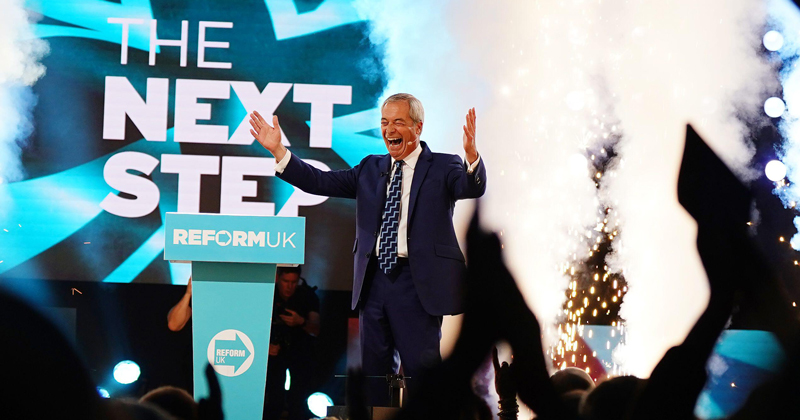











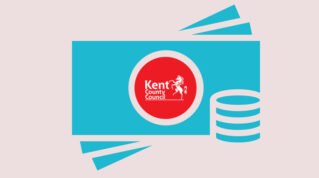

Your thoughts